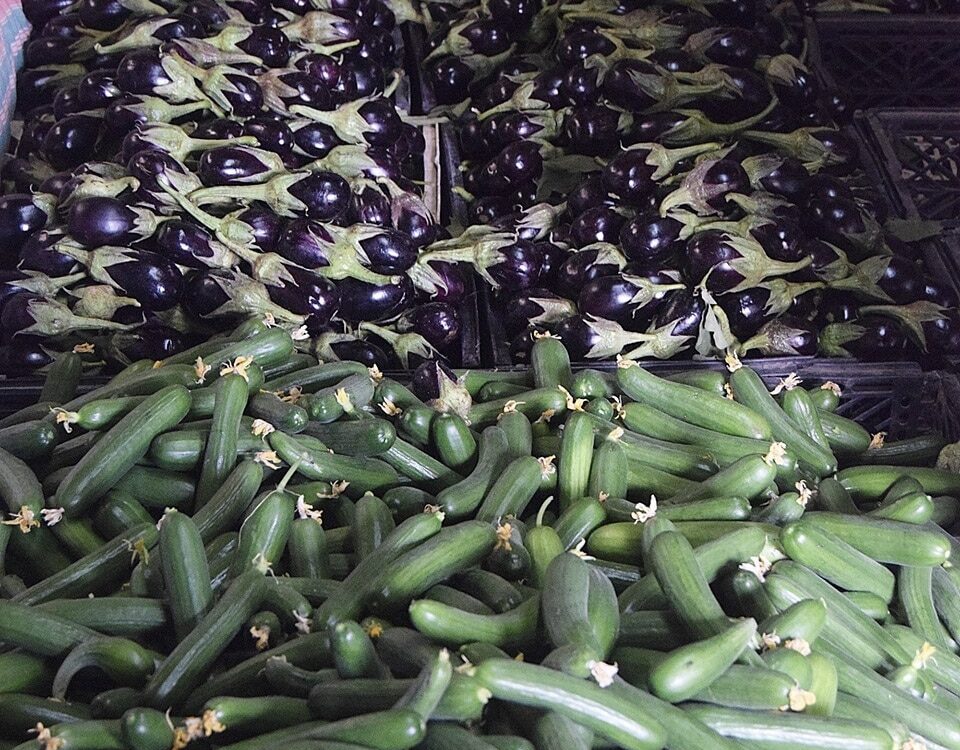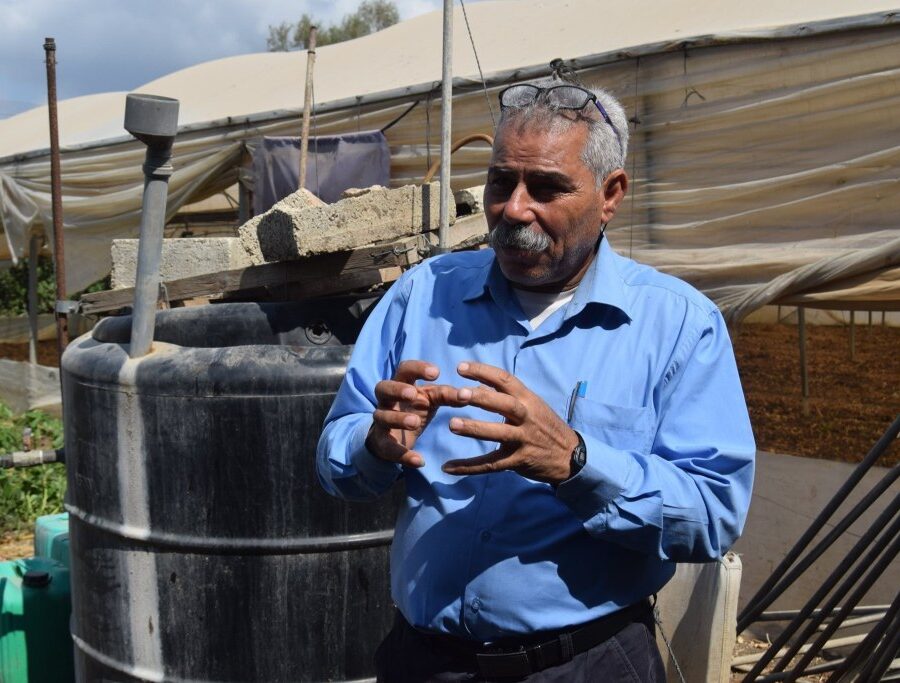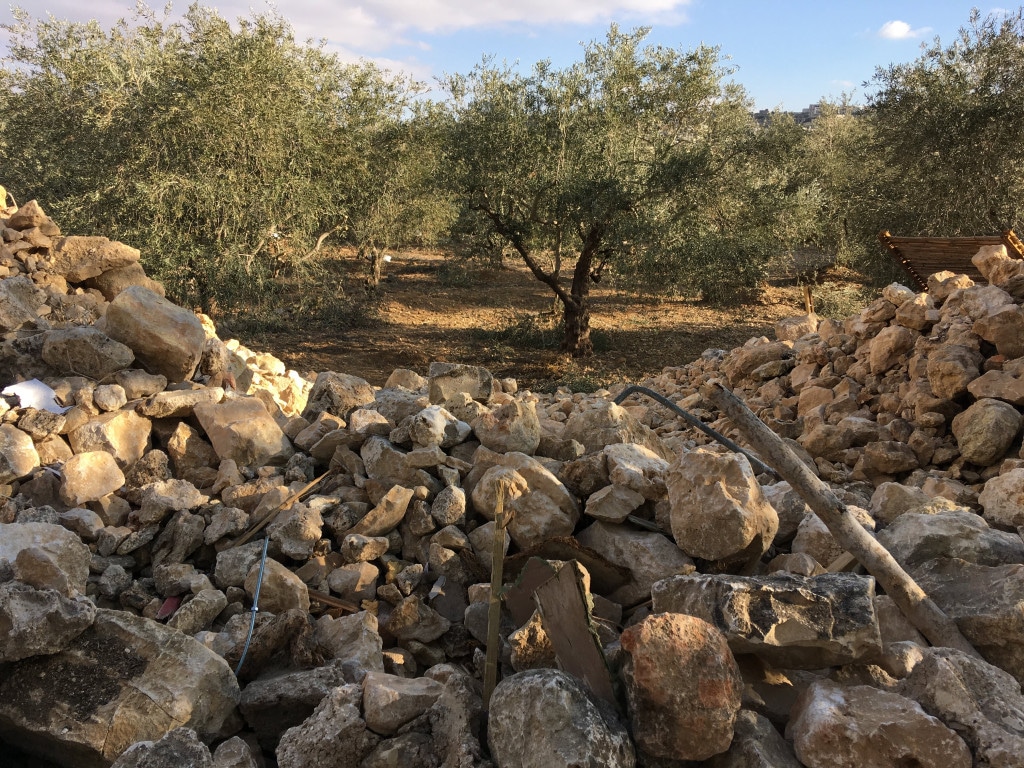The occupation of Hakoritna Farm
Arriving at Hakoritna Farm, it is easy to see what makes the farm unique. The farm is surrounded on three sides by the separation barrier and an Israeli chemical factory built in the West Bank. These two obstacles have resulted in the area of farm that Fayez owns decreasing from 3.2 hectares to 0.7 hectares, although since 2003 he has rented a further hectare from a neighbour.
Despite opposition, the factory opened in 1985. In 1989 toxic powder blew over from the factory onto Fayez’s land destroying much of what had been grown there. When Fayez took the opportunity to challenge this in court he was told there was nothing that could be done as the factory was in the West Bank and no protective legislation existed for that area. The chemical plant continues to lie right next door to the farm and the separation barrier.
Some of the farms products include aubergines, cucumbers, peppers, beans and spinach which are all grown inside greenhouses. Lettuce, onions, radish, grapes, cauliflower, asparagus and za’atar (three different kinds) are grown outside. Fayez’s fight has taken him as far afield as the United Nations Human Rights Council in Geneva and he served as a coordinator for the Palestinian Farmers Union for three years. He credits his wife as being the driving force behind his resistance: ‘she taught me how to fight, she is stronger than me’.
I ask him to expand on what continues to motivate him despite the challenges he has faced. ‘My farm, we want to stay here forever as we have security in producing our own food. As I have said, I have a great wife who always gives me strength. I have also travelled the world a great deal learning more about organic farming and agricultural resistance’.
‘It is food for all of my plants and helps me to create a new energy source.’
As surprising as it sounds, with the restrictions that the farm faces, it is still able to produce all of its own energy and food. Techniques used at the farm that allow this to be feasible include chemical-free raised bed horticulture, solar food drying, biogas energy production, local seed collection, trading and storage, an aquaponics installation, and solar panel powered energy. Fayez was particularly keen to tell us about his farm’s usage of compost tea: ‘it is food for all my plants and helps to create a new energy source,’ he added. ‘Everything is recycled so there is no need to buy anything’.
When I ask Fayez about the future for the farm, for the first time he seems uncertain. ‘You know, with the situation here we never know what will happen in the future’. All his children have now finished university and they help out when they have time on the farm. Fayez says he does not know whether they will take over at any point.
‘The oil on this farm has won awards internationally.’
When I ask whether the recent elections in Israel offer any hope that things will become less difficult Fayez offers the following: ‘There is no difference between Gantz and Netanyahu, if anything life has become more difficult recently’.
It is currently the olive harvest season in the West Bank and this leaves our conversation on a more optimistic note as Fayez tells me that he has 60 olive trees. He is expecting a good harvest and tells me that across the West Bank there are around 19,000,000 olive trees with 30,000 tonnes of olive oil produced during a successful harvest. More than 50% of it is sold outside of the West Bank. ‘The oil on this farm has won awards internationally’.




